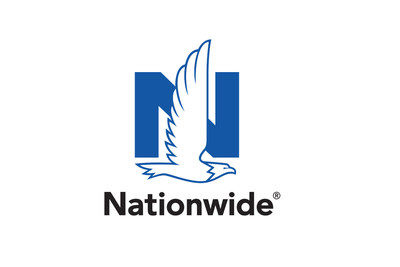Single in Retirement: Looking for Love and Financial Security
One in five single investors fear they may never be able to retire
COLUMBUS, Ohio, April 14, 2025 /PRNewswire/ -- For many Americans, being single in retirement was not part of their life's plan. Yet millions will face their second act without a partner, adding financial strain to this significant life transition, according to a new Advisor Authority study, powered by the Nationwide Retirement Institute.
A quarter (25%) of single investors say they did not plan to be alone in retirement and nearly the same share (22%) say they are scared to grow old alone. Only a small group (9%) say they enjoy the independence of being single in retirement. Despite these challenges, single investors remain optimistic about finding new love, with a quarter (26%) still hoping to find a partner in retirement.
Those planning for retirement without a partner are bracing for added financial headwinds. More than a third (37%) of single investors say they experience more strain or financial hardship compared to their married or partnered peers, a rate that increases significantly for single investors under 50 years old (44%). Non-retired single investors are concerned about their retirement prospects, with 18% indicating they don't know if they'll ever be able to retire.
The amount this cohort has saved for retirement, compared to their perceived target savings goals, shows a significant disconnect. Nearly half (46%) of single investors say they would need up to $600,000 in retirement savings to feel comfortable about their future. Yet, just 23% say they have at least $250,000 saved and only 18% say they have $500,000 or more saved towards retirement.
"Single investors are facing retirement challenges that their coupled counterparts are not, relying solely on their individual saving efforts compared to those with a second source of income from a partner," said Rona Guymon, senior vice president of Nationwide Annuity Distribution. "It's not surprising they believe they need to hit a 'magic number' in retirement to live comfortably. What's important to remember is that everyone's savings goal will vary based on more than just relationship status. It's good to have an attainable goal, but holistic financial planning with an advisor – who can help address single retirees' unique needs – is a more constructive way to think about achieving a secure retirement."
Single and Partnered Investors Vary in Their Approaches
Single investors may be missing some opportunities to optimize their investment approach compared to their coupled counterparts. For example:
- Less than half (49%) of single investors who have a strategy to protect assets against market risks say they focus on diversification of assets or non-correlated assets in their retirement portfolios, compared to 62% of partnered investors.
- About one third (34%) of single investors do not currently have a strategy in place to protect their assets against market risk, compared to 27% of partnered investors.
- Single investors are less likely to turn to an advisor or financial professional for help, with just 35% saying they currently pay to work with one, compared to 46% of partnered investors.
Single investors who do work with a financial professional find the most important benefits of doing so include protecting their assets against market risk (20%), helping them make more informed decisions (15%) and keeping them focused on long-term goals (15%).
For Advisors, Decumulation and Tax Strategies Have Become a Priority
Financial professionals are focused on guiding their single clients toward a stable retirement, ensuring they have the resources and strategies needed to navigate their finances.
Nearly half (49%) of advisors are providing guidance to their single clients approaching retirement on when to claim Social Security benefits, and a similar share (49%) are discussing when to withdraw funds from retirement accounts.
Tax planning is another key area of focus. More than a third (36%) of advisors are developing a plan to combat negative tax impacts traditionally alleviated by spousal income for single clients approaching retirement.
"Whether you're a single person planning for retirement or a financial professional working with one, it's important to recognize there are several elements of financial planning that may be different when retiring without a partner," Guymon said. She highlights the following considerations for single savers to address with their financial professional:
"The benefits of working with a trusted advisor are clear when it comes to feeling confident about living in retirement, regardless of relationship status," Guymon said. "In today's highly volatile market conditions, advisors should help single investors stay focused on their long-term plan and understand the value of protection solutions, like annuities. This is particularly important for those without the additional security of a partner to fall back on."
The Nationwide Retirement Institute offers additional resources to help advisor facilitate conversations with clients.
For additional insights on this survey data, see our infographic.
Nationwide's tenth annual Advisor Authority study powered by the Nationwide Retirement Institute® explores critical issues confronting advisors, financial professionals and individual investors—and the innovative techniques that they need to succeed in today's complex market.
About Advisor Authority: Methodology
The Harris Poll, on behalf of Nationwide, conducted an online survey in the U. S. among 610 advisors and financial professionals and 2,524 investors ages 18+ with investable assets (IA) of $10K+, January 6-25, 2025. Among the investors, there were 866 single investors in total including 423 women investors, 434 men investors, 460 investors age <50, 406 investors age 50+ as well as 1,658 married or partnered investors.
The sampling precision of Harris online polls is measured by using a Bayesian credible interval. For this study, the sample data for advisors is accurate to within ± 4.0 percentage points and for investors the sample data is accurate to within ± 2.5 percentage points using a 95% confidence level. This credible interval will be wider among subsets of the surveyed populations of interest.
For complete survey methodology, including weighting variables and subgroup sample sizes, please contact vasask@nationwide.com.
About The Harris Poll
The Harris Poll is one of the longest running surveys in the U.S. tracking public opinion, motivations and social sentiment since 1963 that is now part of Harris Insights & Analytics, a global consulting and market research firm that delivers social intelligence for transformational times. We work with clients in three primary areas: building twenty-first-century corporate reputation, crafting brand strategy and performance tracking, and earning organic media through public relations research. Our mission is to provide insights and advisory to help leaders make the best decisions possible. To learn more, please visit www.theharrispoll.com.
About Nationwide
Nationwide, a Fortune 100 company based in Columbus, Ohio, is one of the largest and strongest diversified financial services and insurance organizations in the United States. Nationwide is rated A+ by Standard & Poor's. An industry leader in driving customer-focused innovation, Nationwide provides a full range of insurance and financial services products including auto, business, homeowners, farm and life insurance; public and private sector retirement plans, annuities and mutual funds; excess & surplus, specialty and surety; and pet, motorcycle and boat insurance.
For more information, visit www.nationwide.com.
Subscribe today to receive the latest news from Nationwide and follow Nationwide PR on X.
Nationwide Investment Services Corporation (NISC), member FINRA, Columbus, OH. Nationwide Retirement Institute is a division of NISC.
Nationwide, Nationwide is on your side and the Nationwide N and Eagle are service marks of Nationwide Mutual Insurance Company. © 2025
Contact:
Alessandra Mohr
The Bliss Group
212-840-1661
amohr@theblissgrp.com
Kristen Vasas-Samson
Nationwide
(614) 435-5716
vasask@nationwide.com
Subscribe to Nationwide News
![]() View original content to download multimedia:https://www.prnewswire.com/news-releases/single-in-retirement-looking-for-love-and-financial-security-302427735.html
View original content to download multimedia:https://www.prnewswire.com/news-releases/single-in-retirement-looking-for-love-and-financial-security-302427735.html
SOURCE Nationwide


